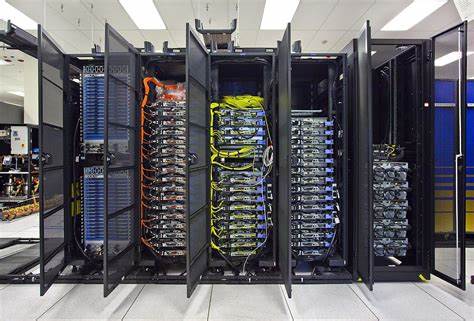Table of Contents
Introduction to Database Administration
Database Administrators play a crucial role in managing an organization’s data. They ensure data is organized, stored securely, and easily retrievable when needed. DBAs work with Database Management Systems (DBMS) to design, implement, and maintain databases that support an organization’s operations.
Educational Pathways
To embark on a career as a Database Administrator, a strong educational foundation is essential. Here are the key pathways:
The field of computer science or a closely related field with a bachelor’s degree
Many DBAs begin their journey with a bachelor’s degree in computer science, information technology, or a related field. This education provides a solid understanding of programming, data structures, and algorithms.
Master’s Degree for Advanced Roles
For more advanced positions or specialized fields like database architecture, pursuing a master’s degree can be advantageous. It allows you to delve deeper into complex topics and gain a competitive edge.
Relevant Certifications
Industry-recognized credentials, like Oracle Certified Professional or Microsoft Certified: Azure Database Administrator Associate, can boost your credibility and demonstrate your knowledge to future employers.
Acquiring Technical Skills
Technical proficiency is a cornerstone of database administration. Focus on the following important skills:
Proficiency in Database Management Systems (DBMS)
Mastering popular DBMS like MySQL, Oracle, or Microsoft SQL Server is crucial. Understanding their functionalities, performance tuning, and data modeling prepares you for real-world challenges.
SQL and Query Optimization
The language of databases is called Structured Query Language (SQL). Proficiency in writing efficient queries and optimizing them for performance is a vital skill for a DBA.
Data Security and Integrity
Safeguarding sensitive data from breaches and ensuring data integrity is of utmost importance. Learning about encryption, access controls, and disaster recovery strategies is essential.
Developing Soft Skills
While technical skills are paramount, developing soft skills is equally crucial:
Problem-Solving Abilities
DBAs often encounter complex issues that require quick and effective problem-solving. Developing this skill ensures you can troubleshoot and resolve issues efficiently.
Communication Skills
Clear communication is key when interacting with colleagues, stakeholders, and conveying technical information to non-technical audiences.
Attention to Detail
Meticulous attention to detail is vital in maintaining accurate and error-free databases.
Gaining Practical Experience
Hands-on experience solidifies theoretical knowledge:
Internships and Entry-Level Positions
Securing internships or entry-level positions provides practical exposure and the chance to learn from experienced professionals.
Working on Real Projects
Contributing to real-world projects hones your skills and adds value to your portfolio.
Building a Portfolio
A portfolio showcasing your projects and solutions is a powerful tool to demonstrate your capabilities to potential employers.
Job Search and Networking
Navigating the job market requires strategy:
Online Job Portals
Websites like Naukri, LinkedIn, and Indeed host a plethora of DBA job listings.
Networking Events and Conferences
Attending industry events and conferences allows you to connect with professionals and stay updated on trends.
LinkedIn and Social Media
Creating a strong online presence, especially on LinkedIn, can attract recruiters and provide insights into the industry.
Crafting an Impressive Resume
Your resume is your first impression:
Highlighting Relevant Skills and Experience
Tailor your resume to emphasize technical skills, certifications, and relevant experience.
Showcasing Projects and Contributions
Detail your contributions to projects, highlighting your problem-solving abilities and achievements.
Tailoring Your Resume for Each Application
Customize your resume for each role to align with specific job requirements.
Acing the Interview
Prepare to shine during interviews:
Technical Assessments
Be ready to demonstrate your technical skills through assessments or coding challenges.
Behavioral Interviews
Answer behavioral questions showcasing your soft skills and adaptability.
Demonstrating Problem-Solving Abilities
Narrate instances where your problem-solving skills made a significant impact.
Continuous Learning and Professional Development
The field of database administration is ever-evolving:
Staying Updated with Industry Trends
Subscribe to industry publications, blogs, and forums to stay abreast of new developments.
Pursuing Advanced Certifications
Continuously seek advanced certifications to enhance your expertise and stay competitive.
Conclusion
Becoming a Database Administrator in India requires dedication, continuous learning, and a combination of technical and soft skills. With the right education, hands-on experience, and a commitment to professional growth, you can embark on a rewarding career in this dynamic field.
FAQs
Q1- What is the role of a Database Administrator?
A- A Database Administrator manages and maintains an organization’s databases to ensure data integrity and accessibility.
Q2- Do I need a master’s degree to become a DBA?
A- While a master’s degree can offer advantages, it’s not mandatory. A bachelor’s degree and relevant certifications can also pave the way to a successful career.
Q3- Which certifications are beneficial for a DBA career?
A- Certifications such as Oracle Certified Professional and Microsoft Certified: Azure Database Administrator Associate are highly regarded in the industry.
Q4- How can I build a strong professional network as a DBA?
A- Attending industry events, conferences, and actively participating in online communities like LinkedIn can help you connect with peers and professionals.
Q5- What is the average salary range for a Database Administrator in India?
A- The average salary range for a Database Administrator in India varies based on several factors including experience, location, the size of the organization, and the specific industry. On average, entry-level DBAs can expect to earn around INR 3 to 6 lakhs per annum. With a few years of experience, mid-level DBAs can earn between INR 6 to 12 lakhs per annum. Highly experienced and senior-level DBAs can command salaries ranging from INR 12 to 20 lakhs or even more per annum, especially in top-tier IT companies and multinational corporations. Keep in mind that these figures are approximate and can vary widely based on individual circumstances and market trends.




